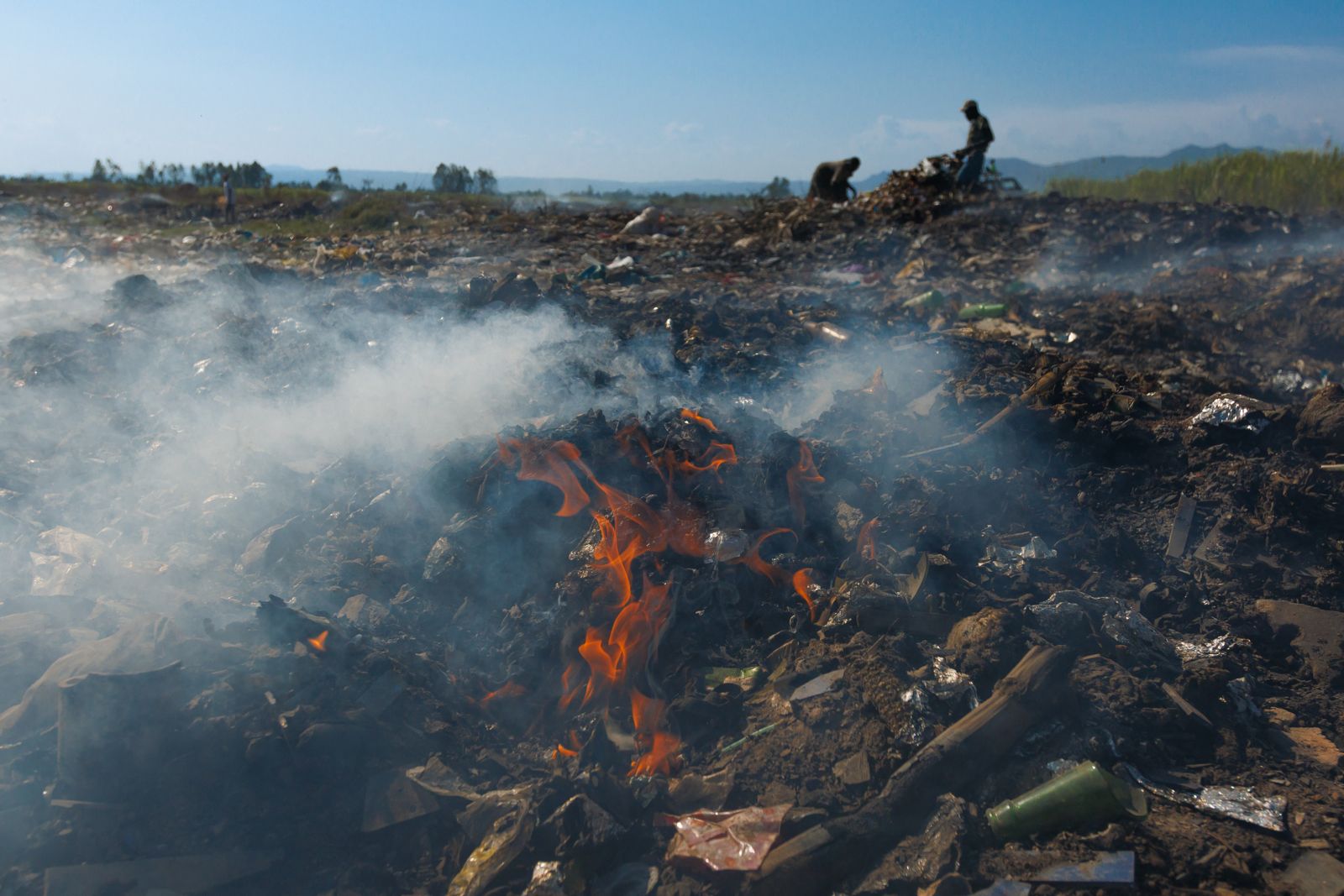

Burning of waste/ Practical Action.
African ministers of environment have urged member states to end open burning by implementing a road map for transformative action.
The 20th session of the African Ministerial Conference on the Environment (AMCEN) in Nairobi, Kenya, endorsed the call.
“As Africa faces mounting health and environmental risks posed by open waste burning, the endorsement of this roadmap marks a decisive step towards implementation,” said Fatou Ndoye, deputy director Unep Africa Office.
The roadmap sets out a comprehensive framework to eliminate open waste burning by 2040 and achieve a reduction of 60 per cent by 2030, serving as a vehicle to implement Amcen resolution 18/1(b).
Head of City Environment and Natural Resource Management Kisumu City Benard Ojwang, said with the roadmap, there is a clear opportunity to catalyse investments that promote innovative and sustainable waste management.
“By aligning financing with local and national strategies, we can support Africa’s vision for a healthier environment and resilient economies. We are proud to have piloted in Kisumu and to be on the road to improving waste management for our communities," he said.
Amcen urged member states to prioritise and implement transformative actions on open dumping and burning of waste, as outlined in the regional roadmap to eliminate open waste burning.
Open burning of waste is a critical environmental and public health challenge across Africa.
About 180 million tonnes of waste is generated daily in sub-Saharan Africa, with up to 90 per cent disposed of in uncontrolled landfills or open dumpsites, contributing to harmful emissions that accelerate climate change and impact human health.
The endorsed roadmap was developed through a multi-stakeholder partnership and consultation with more than 250 partners over the course of a year.
It addresses the urgent issue through a comprehensive approach of understanding the current state of waste management, its health and environmental impacts and the challenges of financing effective solutions.
It also identifies core strategies and actions necessary to transform waste management systems and practical guidelines for developing context-specific, transformative action plans at the local government level.
It was piloted in Kisumu and has led to the creation of a city action plan with no-cost, low-cost and investment actions that were developed through a multistakeholder committee.
Actions are already underway, including mobilising landlords and households to separate their waste and take up collection services.
This pioneering effort is the result of extensive collaboration between Engineering X, a growing collaboration founded by the Royal Academy of Engineering and Lloyd's Register Foundation; Practical Action; the Unep; UN-Habitat; the Institute for Global Environmental Strategies; the International Solid Waste Association and partners from national and local governments, financing institutions and civil society.
The roadmap now offers a vital tool for local authorities to develop and implement transformative action plans tailored to their communities, empowering them to eliminate open burning and improve public health and environmental outcomes.
Stakeholders are urged to join forces to mobilise resources, expertise, and political will to ensure the successful implementation of this roadmap and realise Africa’s vision of a cleaner, healthier future.
















